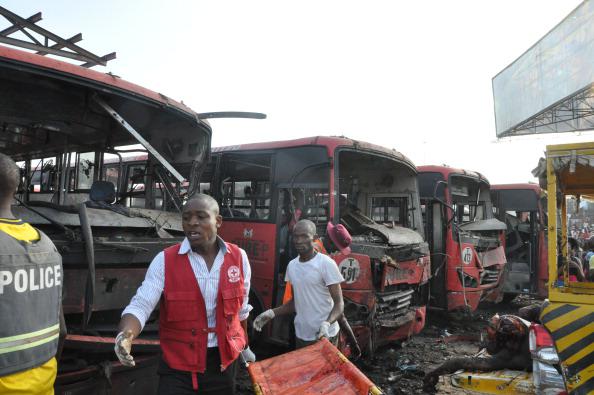At least 71 people died and 124 were injured today in Nigeria by a suspected car bomb in the capital city of Abuja. The country’s president immediately and publicly accused a domestic faction of perpetrating the attack:
President Goodluck Jonathan, who visited the blast scene, blamed Boko Haram, the homegrown Islamist extremist group that has been attacking schools, government sites and civilians for years.
A police spokesperson said no group had yet claimed responsibility for the bombing, but Boko Haram’s involvement would not be a surprise. The movement, based in the country’s disproportionately poor northern states, is a confederation of Islamic militants who seek the overthrow of secular authorities and have been involved in a cycle of large-scale violence and reprisal with the central government since 2009. Boko Haram has carried out fatal attacks on schools, churches, and a United Nations compound, and it is considered a terrorist organization by the State department. Both this United Nations report and this Council on Foreign Relations paper, however, find Nigeria’s government culpable in the spread of violence. From the U.N.:
Tactics employed by government security agencies against Boko Haram have been consistently brutal and counterproductive. Their reliance on extrajudicial execution as a tactic in “dealing” with any problem in Nigeria not only created Boko Haram as it is known today, but also sustains it and gives it fuel to expand.
Even before today’s incident, Jonathan had already declared a “state of emergency” in the north, while one public official called Boko Haram “better armed and better motivated than our own troops.”
This post has been updated.
